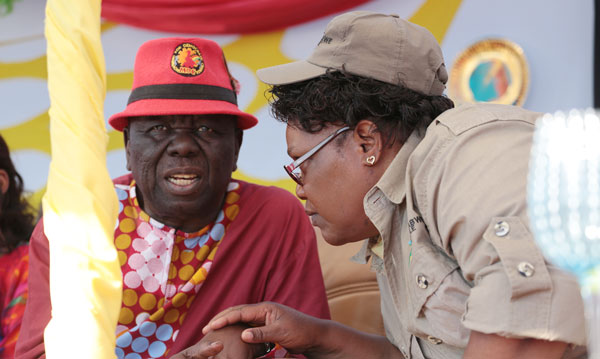
The imperative and inevitability of a coalition of progressive democratic forces is no longer the issue at hand currently, but rather the form and shape of such a coalition. The political arithmetic which justifies the importance of an electoral alliance have been exhausted by other analysts so I will dwell on the mechanics of such a coalition.
by Dumisani O Nkomo
Composition
It is critical for a broad political coalition consisting of the MDC-T, the National People’s Party, MDC, People’s Democratic Party, Zapu and other parties to be formed for the purposes of contesting in the elections and possibly forming a coalition government afterwards. The coalition should not be a permanent arrangement or covenant but more of a strategic political alliance for the purposes of unseating Zanu PF in the short-term and to progressively construct a transformative economic and political agenda to place Zimbabwe firmly on the road of recovery. The coalition should thus be a pact which does not amalgamate political parties into a single unit but be a strategic alliance to challenge and remove Zanu PF with a coalition government being formed afterwards.
Shape and form
The coalition should design a template on which candidates will be fielded based on the collective strengths of the parties concerned and the individual merits of the proposed candidates. Obviously, at the presidential level one candidate must be fielded and a strategy of campaigning for the said candidate must be formulated. It must be clear from the beginning who the running mates for that candidate are and these should then become the vice- presidents or senior ministers in a new cabinet. The coalition must take into cognisance the peculiar strengths and weaknesses of each political player participating in the elections. Some political parties are stronger in some localities and have more capacity to represent in certain areas than others.
Zanu PF would have been buried in an electoral avalanche in both Matabeland South and Matabeleland North if the two MDC parties had backed one candidate per constituency. Instead the vote was split and for the first time Zanu PF swept seats in Matabeleland rural. Fielding of candidates in the constituencies must thus be based on:
*The numerical strength of the parties in certain localities.
- Chamisa under fire over US$120K donation
- Mavhunga puts DeMbare into Chibuku quarterfinals
- Pension funds bet on Cabora Bassa oilfields
- Councils defy govt fire tender directive
Keep Reading
*The quality of candidate being offered by the political parties. Quality in this instance is not limited and by no means academic qualifications but includes factors such as proven track record in leadership, quality of ideas, etc.
A coalition is not just about numbers but strategic competence. The MDC-T, especially will come in with the strong grassroots base, charisma and political stratagem. Welshman Ncube will come in with his brilliant negotiation skills and strong regional bias. Zapu brings in a rich liberation history and vital links with the military.
Mujuru’s NPP party has the potential to eat into at least 6% to 10% of the Zanu PF vote with marginal to significant inroads into the Mashonaland provinces.
The coalition must also include people who are not necessarily in the political party structures but have the pedigree to represent and if possible, sit in government and chart a way forward.
Coalition strategy
The electoral coalition must have a clear, winning strategy to rally Zimbabweans to back it. The four critical strategic areas which the coalition must focus on are as follows:
*Making inroads into the rural areas. * Activating the quiet vote, especially virgin or first-time voters. *Splitting the Zanu PF vote, especially in Mashonaland East, West and Central * Deactivating and pre-emptying rigging strategies
Dumisani O Nkomo is the chief executive officer of Habakkuk Trust and the spokesperson of the Crisis in Zimbabwe Coalition. He writes in his personal capacity











